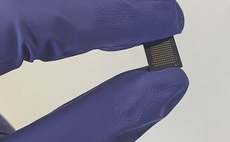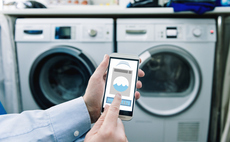President and CEO Yoon appeals for greater openness and data sharing
Samsung president and CEO BK Yoon used the company's opening keynote speech at this year's Consumer Electronics Show (CES) to urge the tech industry to collaborate more in order to "unlock the infi...
To continue reading this article...
Join Computing
- Unlimited access to real-time news, analysis and opinion from the technology industry
- Receive important and breaking news in our daily newsletter
- Be the first to hear about our events and awards programmes
- Join live member only interviews with IT leaders at the ‘IT Lounge’; your chance to ask your burning tech questions and have them answered
- Access to the Computing Delta hub providing market intelligence and research
- Receive our members-only newsletter with exclusive opinion pieces from senior IT Leaders





















